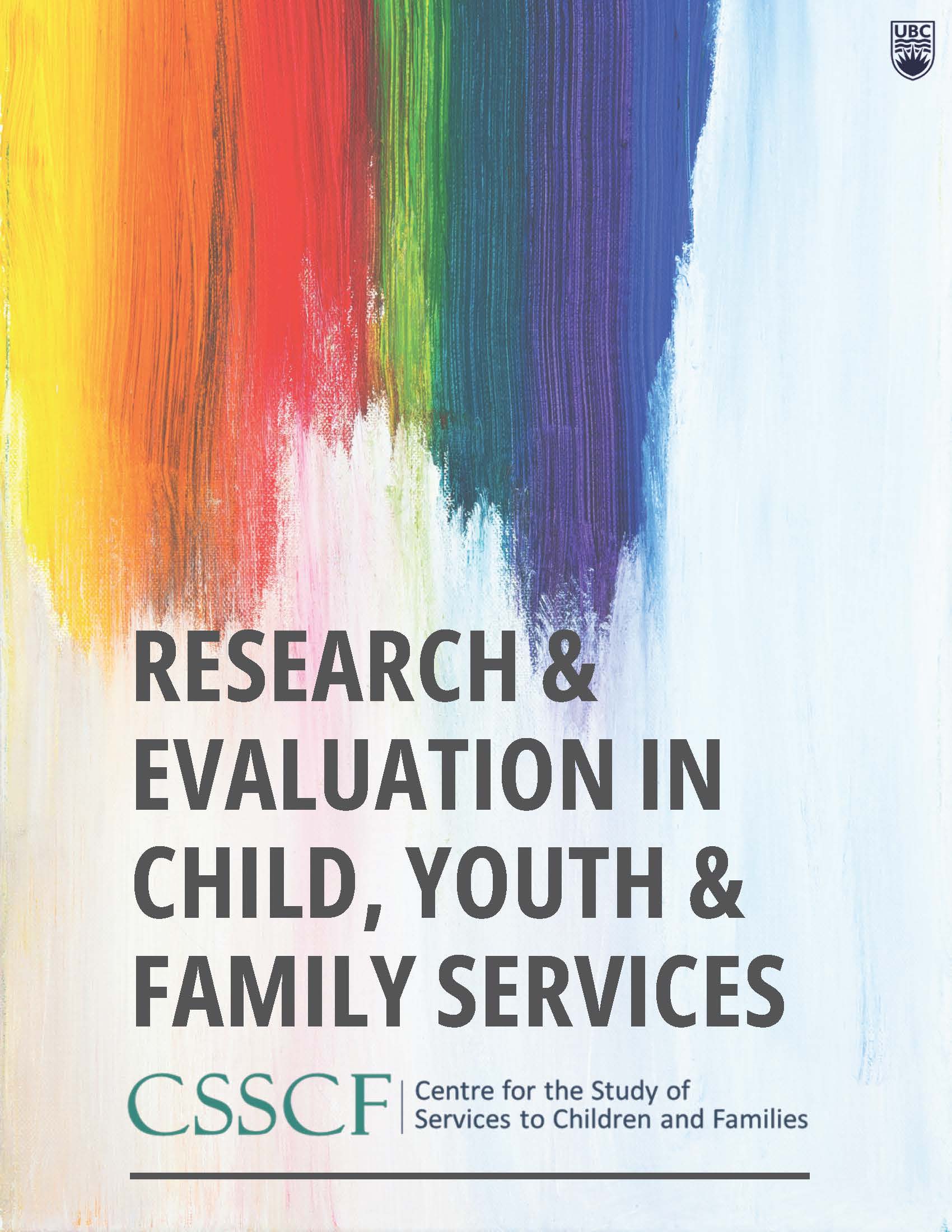Creating Effective Family Plans
DOI:
https://doi.org/10.14288/recyfs.v2i1.197571Keywords:
Family and Child Strengths and Needs Assessment, Structured Decision-Making (SDM), Child Protection, Collaboration, Vancouver/Richmond Service Delivery Area, Coast/North Shore Service Delivery Area, South Vancouver Island Service Delivery AreaAbstract
This research project has been a partnership between the Ministry of Children and Family Development (MCFD) and the University of British Columbia (UBC) School of Social Work. In recent years, MCFD’s policies and processes have shifted towards collaborative and participatory approaches. The Family Plan Structured Decision-Making (SDM) tool is a document (Family Plan) used to address child protection concerns as identified by the Family and Child Strengths and Needs Assessment. The Family Plan was also developed with the intention to involve families in identifying needs and goals. UBC-MCFD research proposals provided by MCFD sponsors Terry Leiko and Selena Cheng suggested some discrepancies in how this tool is used among child protection social workers (CPSW) and offices, and there is also a lack of research that looks at how CPSWs are and should be using the tool. Our evaluation research project seeks to answer the following three questions:
1) What are child protection social workers’ understanding of how to utilize the Family Plan tool?
2) What do child protection social workers find useful and challenging when using the Family Plan tool?
3) How are child protection social workers using the Family Plan as a tool to engage and collaborate with families?
This project evaluation highlights key areas for practice consideration regarding the use of the Family Plan. In order to better understand the importance and effectiveness of the Family Plan in practice, this research starts with an in-depth literature review that informs the theoretical frameworks, a comprehensive methodology section followed by findings and limitations to this research, as well as implications and recommendations for future research and directions.
Our research team discovered that there is a lack of literature on the Family Plan, and other than the documents presented by MCFD. However, the following themes were highlighted in the literature: barriers to building a participatory worker-client relationship, facilitating family engagement and collaborative case planning. Our team considers the following theoretical approaches to be fundamental to our research study: strengths-based social work through promoting client empowerment and self-determination and trauma-informed social work practice (Darlington, Healy, & Feeney, 2010).
This qualitative research study used a purposive sampling intentionally choosing participants on an inclusion criterion we created. Recruitment was conducted through MCFD sponsors facilitated contact procedure, and it focused mainly on three service delivery areas (SDA): Vancouver/ Richmond, Coast/ North Shore, and South Vancouver Island. The data was collected through six semi-structured phone interviews and six online surveys. The qualitative data was then coded and analyzed using the Thematic Analysis (Braun & Clarke, 2006) approach to identify themes and relationships. Following data analysis, student researchers identified five themes: clear and transparent reference guide, creativity in collaboration and empowerment, barriers, training and continuing education, and mentorship and collaborative practice. This evaluation project has limitations which are related to history, selection bias, reactive affect / social desirability, limited time frame, research bias, and differences in interviewing styles.
This research has also highlighted five future recommendations to be considered by MCFD, and they are as follows: offer mentorship and ongoing training, increase awareness that the Family Plan is a collaborative tool, offer training in conflict management, incentivize training and continuing education by addressing what CPSWs consider as gaps in their knowledge of the plan, and draw upon collaborative practices such as FCPCs (Family Case Planning Conferences) to facilitate family engagement and reduce power imbalances. For future research, this team of student researchers also suggest to MCFD to examine the use of the Family Plan with Aboriginal families and the potential colonial aspects of the plan as well as how to effectively and collaboratively integrate resource mobilization into the plan.
In closing, our research project was an outcome of MCFD’s shift towards collaborative and participatory approach to child protection work. Furthermore, this team of student researchers believes that through this evaluation research project, we identified themes and specific recommendations that will help promote practice that is grounded in the principles of collaboration and empowerment.
Downloads
Published
Issue
Section
License
Copyright (c) 2022 Research and Evaluation in Child, Youth and Family Services

This work is licensed under a Creative Commons Attribution-NonCommercial 4.0 International License.
This work is licensed under a Creative Commons Attribution-NonCommercial 4.0 Inrernational License. Copyright for articles published in this journal is retained by the authors, with first publication rights granted to the journal. By virtue of their appearance in this open access journal, articles are free to use, with propoer attribution, in edicational and other non-commercial settings.


